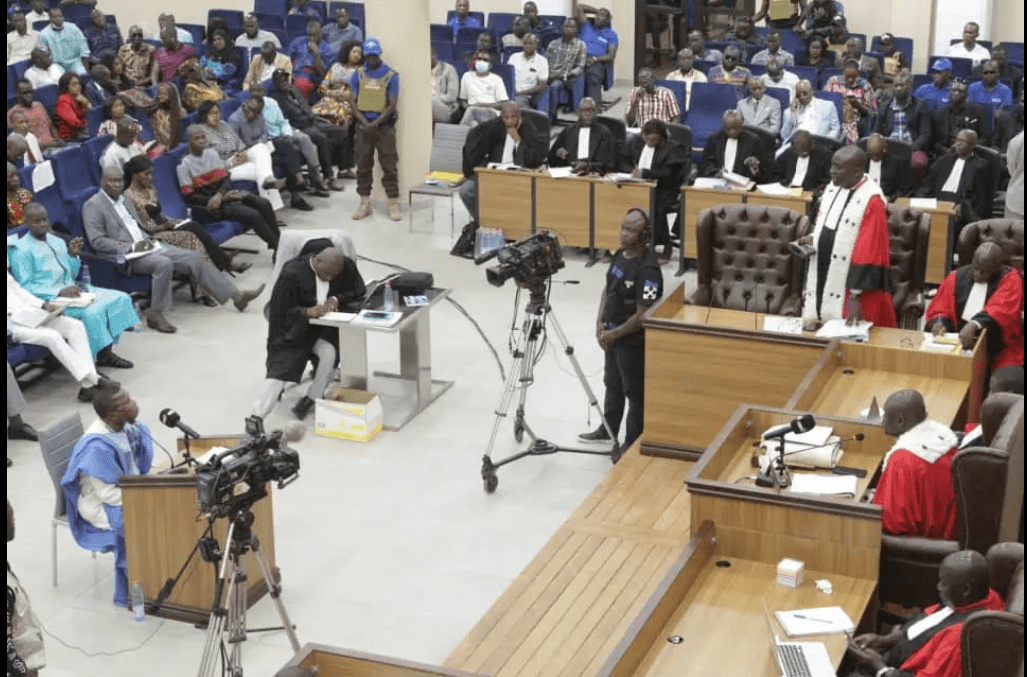14 Years On, Over 50 Victims Finally Heard; International Support Needed
- In the past year, more than 50 victims of Guinea’s 2009 brutal stadium massacre have been heard by judges in front of 11 accused, including Guinea’s former president.
- The trial is a rare current example of domestic accountability involving high-level suspects and should inspire more similar justice efforts.
- International partners can help ensure the trial is fair and effective, including through adequate resources, scrutiny, and support for the proceedings.
(New York) – A landmark trial before a domestic court in Guinea of a brutal massacre of peaceful demonstrators in 2009 in the country’s capital is making significant progress, Human Rights Watch said today, releasing a question-and-answer document about the events.
September 28, 2023, marks one year since the trial began and the fourteenth anniversary of the security forces attack in which more than 150 people died and scores of women were raped. The trial, which has been on judicial recess during August and September, is set to resume on October 3.
“During the past year, more than 50 victims of Guinea’s horrific stadium massacre and each of the 11 accused, including Guinea’s former president and ministers, have been heard at the trial,” said Elise Keppler, associate international justice director at Human Rights Watch. “The trial is a landmark justice effort for the victims and the country, and it should help inspire more domestic accountability efforts globally.”
The question-and-answer document details the following:
- 11 defendants’ identities and their rights at trial.
- Progress in the proceedings and next steps.
- Role of victims in the trial.
- Broadcast and media coverage of the proceedings.
- Challenges around resources and security.
- How international entities can help promote the trial’s fair and effective progress.
- Guinea’s current political context.
The trial is the first of its kind involving human rights abuses of this scale in Guinea and a rare current example of domestic accountability for atrocities involving high-level suspects, Human Rights Watch said. The trial has captured the nation’s attention in many ways, including broadcasting the proceedings live.
“The trial needs continued encouragement, scrutiny and support from international players, including the International Criminal Court, United Nations, and donors,” Keppler said. “The victims and their families have long campaigned for this trial and deserve to see the people responsible for the massacre held to account.”
Source:https://www.hrw.org/news/


